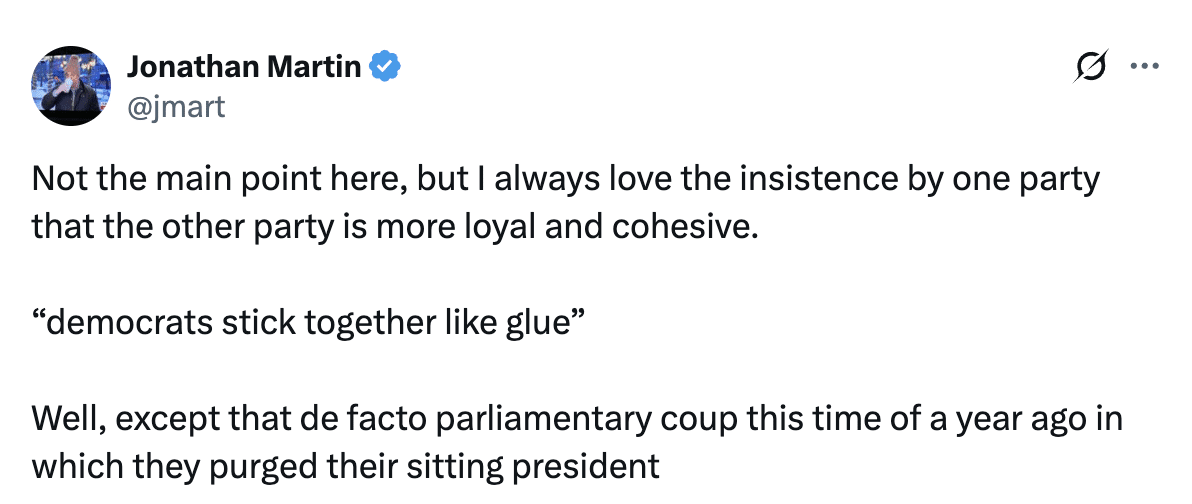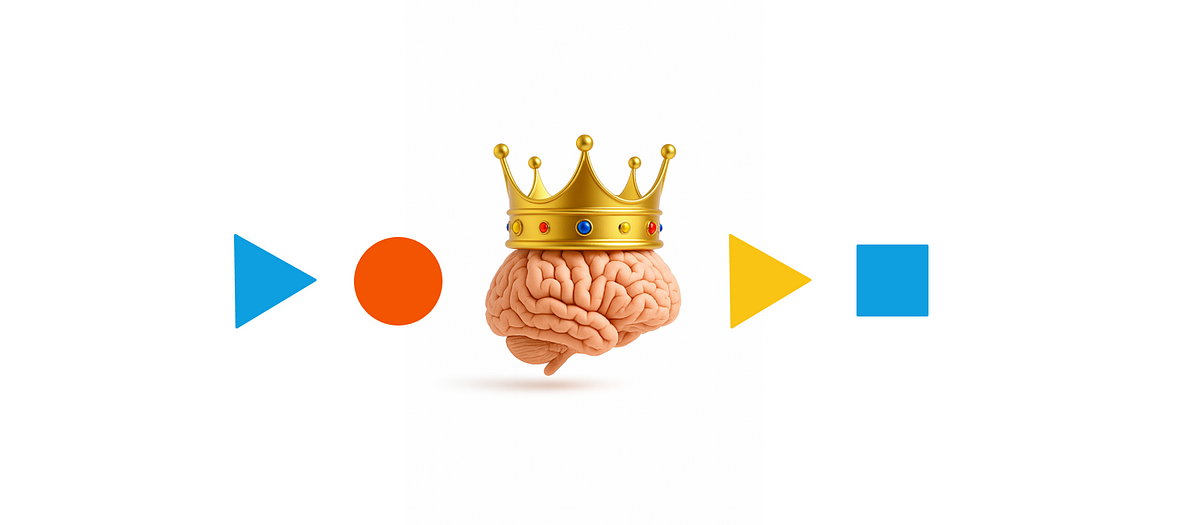#polarization
#polarization
[ follow ]
#political-violence #charlie-kirk #social-media #assassination #generative-ai #empathy #algorithms #trump
fromHarvard Gazette
5 days agoExcerpt from 'The Cradle of Citizenship' by James Traub - Harvard Gazette
The same deep forces that afflict many Western nations have wrenched us apart: the transition to a postindustrial economy and the attendant erosion of working-class security, the demographic shift toward a "majority minority" nation, the cultural upheaval that has dethroned men, and especially white men, from their age-old dominance - and the rise of entrepreneurs of outrage eager to exploit all that free-floating anger.
Education
fromenglish.elpais.com
4 weeks agoChapter 14: President of the Digital Dystopia
Donald Trump seems to have come back from the future. From that dystopian and bleak tomorrow toward which some seek to lead us, taking advantage of the growing polarization and the prevalence of emotions over rationality. From that digital realm characterized by the rise of social media, now made stronger and more chaotic by the explosion of generative artificial intelligence. Ezra Klein recently discussed this on his podcast with the journalist and activist Masha Gessen.
US politics
World news
fromFortune
1 month agoTrust has become the crisis CEOs can't ignore at Davos, as new data show 70% of people turning more 'insular' | Fortune
Global trust has eroded: about 70% exhibit insular mindsets, prompting urgency for trust-brokering, nonjudgmental communication, and long-term local business relationships.
US politics
fromLos Angeles Times
2 months agoCalifornia's role in shaping the fate of the Democratic Party and combating Trump on full display
California offers Democrats economic strength and progressive policies but also polarizing issues and negative portrayals that complicate its national electability.
fromPsychology Today
2 months agoHow to Foster Civil Discourse in the Classroom
Universities were once celebrated as places where ideas could be challenged, debated, and refined. Classrooms were meant to be arenas for civil discourse -spaces where disagreement was not only tolerated but valued. Yet that ideal is under strain. Divisions between social and political groups have deepened, and polarization-especially in the U.S.-has reached historic levels. Many instructors now hesitate to invite disagreement for fear that conversations will spiral into conflict. But learning depends on dialogue. And dialogue depends on difference.
Higher education
fromBig Think
3 months agoAmerica already has the tools to heal division - we just need to relearn how to use them
We've mistaken expression for impact, conflating social media dust-ups with actual power. We've neglected the unglamorous work that holds societies together: governing, problem-solving, and cooperating across differences. My research shows that real change happens not in viral TikToks but in drab meeting rooms - the phones-down, notebooks-out work of local governance. It's there that we make progress and bridge divides.
US politics
Public health
fromBuzzFeed
3 months agoI'm An Infectious Disease Doctor. Here's What Happened When I Sat Next To A Vaccine Skeptic On A Plane.
Political polarization and online misinformation are driving public mistrust of infectious disease science, affecting vaccine decisions, funding, and clinicians' willingness to reveal their expertise.
fromPsychology Today
3 months agoWhy We Think Others Lie More Than We Do
When a rival lies or cheats, we demand justice. But when a friend does, we offer excuses. Equally, we believe our team plays by the rules while others bend them. Yet honesty depends on the messenger. When someone from our in-group bends the truth, we call it strategic, but when the out-group does it, we call it deceit. In a modern era of algorithmic bubbles, deep fakes, and partisan feeds, the cost of this bias grows.
Psychology
US politics
fromThe Walrus
4 months agoEnough of Tactics to Deal with Trump. What Canada Needs Is a Strategy | The Walrus
Centralized U.S. national institutions have fueled a democratic crisis by failing to manage polarization, reshaping federalism and producing spillover effects that also destabilize Canada.
fromemptywheel
4 months agoThe Shutdown Will Make Trump's Theory of Government-ICE but No Healthcare-Visible - emptywheel
Yesterday, at 5:46PM, the Senate rejected a cloture vote on the Democratic continuing resolution, which in addition to funding government, would extend healthcare support and prohibit impoundment. It was a party line vote. Yesterday, at 6:41PM, the Senate rejected a cloture vote on the Republican continuing resolution. Three Democrats voted with 52 Republicans in favor: Catherine Cortez Masto John Fetterman Angus King Rand Paul voted with Democrats against. And so, at midnight, nonessential functions of the Federal government started to shut down.
US politics
fromPsychology Today
5 months agoThe Psychological Pull of Authoritarianism and Autocracy
Many people are concerned about the rise in authoritarianism and autocracy globally. These political structures create a climate of fear, uncertainty, and stress. Authoritarian regimes can quickly dismantle programs that benefit people and the environment, leaving citizens disempowered and more vulnerable to environmental degradation. Understanding the psychology of authoritarianism supports the mental clarity needed for resisting, fostering well-being, and imagining and building sustainable futures.
Mental health
US politics
fromNextgov.com
5 months agoFacing a shutdown, budget negotiations are much harder because Congress has given Trump power to cut spending through 'rescission'
Congress increasingly relies on stopgap continuing resolutions instead of passing full annual budgets due to polarization and failed long-term budget negotiations.
fromBitcoin Magazine
5 months agoA Response To Sir Tim Berners-Lee: We Can Fix The Web Without Regulation
I agree with Berners-Lee's diagnosis. But regulation is not the cure. The web's decline is not merely a design failure; it is also an economic one. Design choices follow incentives, and those incentives have been distorted by fiat money and the advertising model it props up. Cheap credit from the fiat-fuelled venture capital system pushed Silicon Valley away from hacker-led engineering and toward surveillance-driven profit extraction.
Web design
fromwww.mercurynews.com
5 months agoFrench: There are monsters in your midst, too
If, say, you're a highly partisan Republican, you will often look at corruption and acts of violence by your partisan opponents and say, That's just what the left does or That's what leftism leads to. Corruption and violence reveals the left's true nature. If a right-leaning extremist commits an act of violence or if a Republican is brazenly corrupt then the response is different.
US politics
fromPsychology Today
5 months agoA Humble Habit for Divided Times, Reflect on Your Privilege
It's impossible to ignore the tension in the air right now. Acts of political violence, heated debates, and deepening division leave many of us feeling bewildered, frustrated, and even helpless. In times like these, our instinct can be to double down on our perspective or point fingers outward. One of the drivers of polarization is the sense that acknowledging another group's struggles somehow diminishes our own. Humility, if we are open to it, offers another path.
Social justice
Science
fromwww.scientificamerican.com
6 months agoThe Way You Search the Internet Can Fuel Echo ChambersWithout You Realizing It
People select search terms that reflect prior beliefs, causing search engines and AI results to reinforce polarization; algorithmic tweaks could broaden presented perspectives.
World news
fromIndependent
6 months agoCiara Kelly: The backlash to U2's statement illustrates that the woke are more interested in gatekeeping than truly supporting the people of Palestine
Public backlash punished U2 for expressing a balanced view on Gaza that condemned Hamas and criticized Israeli actions, showing intolerance for nuance.
fromenglish.elpais.com
6 months agoErika Stael von Holstein, director of Re-Imagine Europe: Instead of trying to convince extremists, we should listen to them'
Erika Stael von Holstein, 41, has been advising European institutions on science, technology, society, and democracy for two decades. She's the founder and director of Re-Imagine Europe, a think tank focused on depolarization. The Stockholm-born advisor has also promoted Nodes.eu, a European observatory of narratives against disinformation. Von Holstein is a member of the expert council on artificial intelligence convened by the Spanish government. This work brought her to Madrid, where she met with EL PAIS.
Miscellaneous
Social media marketing
fromBusiness Insider
6 months agoResearchers built a social network made of AI bots. They quickly formed cliques, amplified extremes, and let a tiny elite dominate.
AI bots created a toxic social environment mimicking real-world social media without algorithms or recommendations.
Parenting
fromPsychology Today
8 months agoPeople-Pleasing in a Polarized Society
People-pleasing arises from a desire for connection but sacrifices personal authenticity.
Setting boundaries is essential for maintaining self-identity in polarized environments.
To overcome people-pleasing, pause and differentiate between disagreement and rejection.
Mindfulness
fromPsychology Today
8 months agoKeeping an Open Mind in an Increasingly Opinionated World
Empathy reduces confirmation bias and opens us to opposing viewpoints.
Polarization flourishes in echo chambers but can be confronted through curiosity.
Open-mindedness demands strength, not weakness, in times of division.
Relationships
fromPsychology Today
8 months agoHow to Build Bridges in a Polarized World
Polarization strains trust and fuels anxiety.
Humility, empathy, and open dialogue are tools for bridging divides and creating connection.
Finding the middle ground within polarizing debates helps build bridges to other people and groups.
[ Load more ]



















